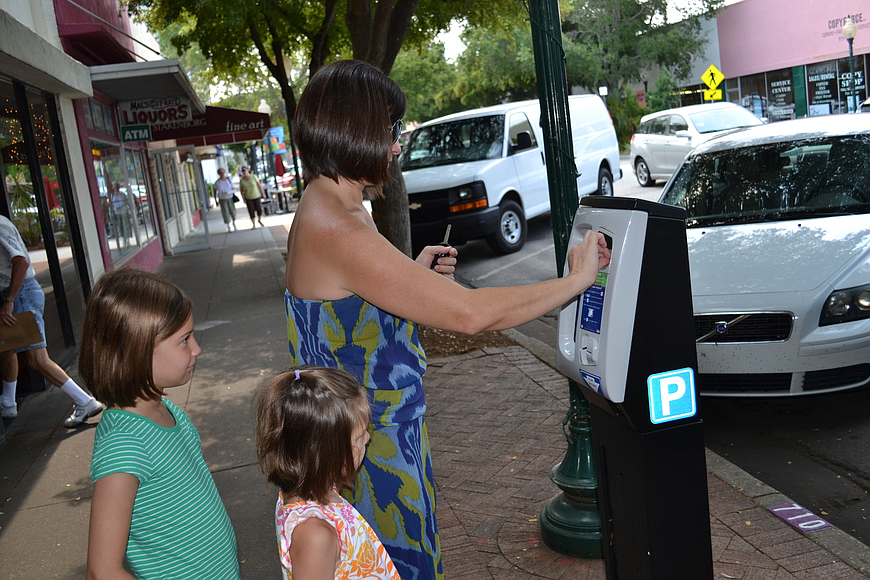- January 6, 2025
-
-
Loading

Loading

Even among those who believe the city should institute a paid parking program, there is disagreement about how an ideal system would be structured.
On Tuesday, the city’s Parking Advisory Committee held its last meeting ahead of a City Commission discussion regarding the return of paid parking. Downtown merchants have already voiced displeasure with a preliminary proposal to phase in parking meters next year, but the committee remains committed to presenting a plan for paid parking to the commission.
Led by Parking Manager Mark Lyons, the group used Tuesday’s meeting as an opportunity to discuss the price points for the meters. Lyons initially proposed similar rates to the last time the city instituted paid parking. That would cost drivers 10 cents for six minutes, 25 cents for 15 minutes, $1 for an hour and an additional $1 for any amount of time between one hour and two hours. The meters would run from 10 a.m. to 8 p.m., Monday through Saturday.
Before the meters were removed in 2011, the city enforced a two-hour time limit on paid spaces. Lyons proposed a system that would allow visitors to stay longer while still working to encourage higher rates of turnover in metered spaces. For the third hour, drivers would have to pay an additional $2. For the fourth hour, the charge would be an additional $3, and so on.
“The goal is to create that incentive to move them along,” Lyons said. “You don’t want to ding them immediately. You want to make it a gradual increase, and that’s what this does.”
Board member Chris Gallagher was hesitant to embrace the graduated rate system Lyons outlined. Although Lyons said graduated and dynamic pricing were becoming accepted practices for municipal parking systems, Gallagher asked for specific examples of downtown communities that had successfully employed a similar model. Until he saw that, he questioned the logic behind the proposal.
“I’m continuing to buy; I’m continuing to have food and drink,” Gallagher said. “Why am I paying more?”
Lyons said the fee system was still a preliminary concept, and that a final decision would be up to the City Commission. Lyons will discuss the topic of paid parking at a September commission meeting, and he intends to present several hypothetical pricing models to the board.
Lyons said some of the questions regarding his initial proposal were valid, and that he would be open to changes as long as the core principles behind the paid parking program remained in tact. One goal is to create turnover so that customers willing to pay a premium for the most convenient locations are able to actually find a space.
“There still needs to be some incentive for people to realize sitting there all day isn’t what we’re looking for,” Lyons said.